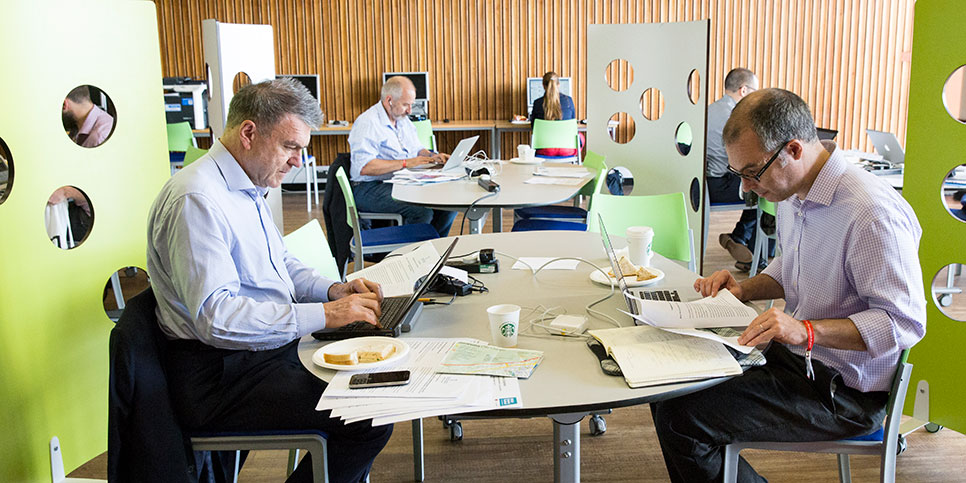
February 14, 2017, by Lindsay Brooke
Journalists and academics have the same goals – they just talk in different dialects
This year the British Science Association (BSA) celebrates the 30th anniversary of their Media Fellowship Scheme. Since 1987 the BSA has been putting academics to work in the newsrooms of some of the country’s most prestigious media organisations. The aim – to help academics gain confidence and increase their willingness to engage with the media and tackle issues of mistrust and misrepresentation. In return journalists gain access to new scientific expertise.
The University of Nottingham has offered BSA Media Fellowships for the last two years. In 2015 Dr Jon Henderson was embedded with The Times and Dr Philip Oldfield worked with the Science team at the Guardian. This year, Dr Denis Schluppeck from the School of Psychology worked at the FT and Dr Jonathan Sullivan, Director of the China Policy Institute, was placed with the BBC Science Unit and Dr Spencer Hazel went to The Times. Here’s a quick look at the 2016 Fellows in action as science journalists during the 2016 BSA Science Festival.
Media Fellows debrief 2016
Having attended the 2016 Media Fellows debrief I was filled with overwhelming optimism that scientists and the media can work together; that there can be a meeting of minds; and, as a result, future scientists will be better educated in science communication and in turn we, the public, will be better informed.
Dr Jonathan Sullivan, spent his placement with the BBC Science Unit. Having seen first-hand how the media operates and discovered there is nothing mystical about the way journalists work he now has a much greater appreciation of what journalists do. His experience has convinced him that journalists and academics can be on the same team. He summed it up by saying: “Journalists and academics have the same goals. We both create and disseminate knowledge – we just talk in different dialects.”
I listened to one academic who would delete her emails from journalists rather than respond to them. For her the idea of talking to the press was just too scary. Dr Jessica Steventon from Glasgow applied for a media fellowship out of curiosity and was placed with OpenDemocracy. She discovered that building close and trusted relationships with the media can help put science into the heart of the political and human rights debate.
As well as learning about the traditional media, fellows also get a taste of online journalism, the power of social media, and the buzz and debate science based stories can create in the Twittersphere.
The Fellowships scheme really does work
The revelation for me as a press officer is that each and every academic who participated in this year’s scheme will return to academia fired with a passion for science communication and a determination to continue writing and working with their mentors and their media organisations.
Having worked as a media relations manager at The University of Nottingham for nearly 10 years and after a career in broadcast journalism spanning over 25 years I spend a lot of time helping academics overcome their concerns and fears of engaging with the media. You can explain how it works, spell out what the media wants and try to help academics understand the time frames journalists work to. The media fellowships scheme puts this all into perspective.
Nothing like jumping in at the deep end
Dr Denis Schluppeck, a neuroscience expert in the School of Psychology, was placed with Clive Cookson, Science Editor at the FT. Dr Schluppeck told me: “There’s nothing quite like jumping in at the deep end and trying it for yourself. It is the only way to really understand how the media works.” He’s determined to use his experience to develop a science communication module for his school. Here’s his account of the experience.
Summer is traditionally the ‘silly season’ for news – when the frivolous takes over from the serious. The summer of 2016 was the exception. Dr Spencer Hazel, who has now moved on to Newcastle University, experienced life as a science journalist with The Times during BREXIT – one of the most tumultuous moments in recent political history. There was a coup in Turkey and Chris Evans quit Top Gear. He discovered how big news stories can consign science to the editorial sidelines and that’s something he wants to change. He said: “Science should not be for the ‘funny pages’ – scientists in all areas of expertise need to engage with the media to steer science based stories out of the sidelines and into the main stream of news.”
Do you want to apply? Information will be posted shortly.
Are you curious about the media? If you have ever wondered what really goes on in a national newsroom? Would you like to improve your communication and writing skills; gain confidence in promoting your research; network with like-minded academics; develop your pitching skills; establish relationships with trusted journalists; or simply try something different? Do you care enough about science to want find out what makes it important to a wider audience and would like to see more science stories in the media? Then this scheme is for you.
The University of Nottingham is sponsoring three more media fellows this year and we’ll be posting the details very shortly.
From all accounts you might be well outside your comfort zone but you’ll discover that science journalists and researchers are not so different at heart and working with the media can be fun.
No comments yet, fill out a comment to be the first

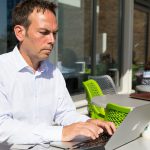
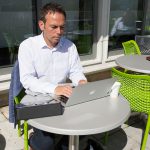
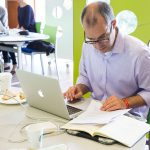

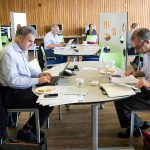
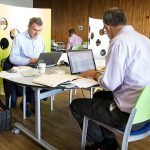
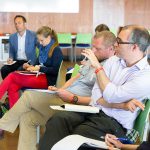
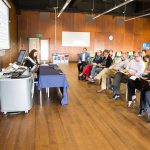
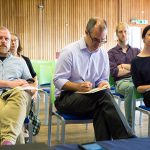
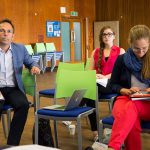
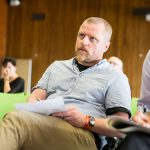
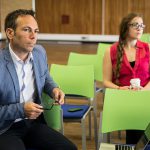
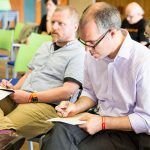
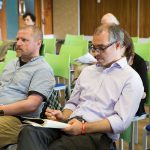

Leave a Reply